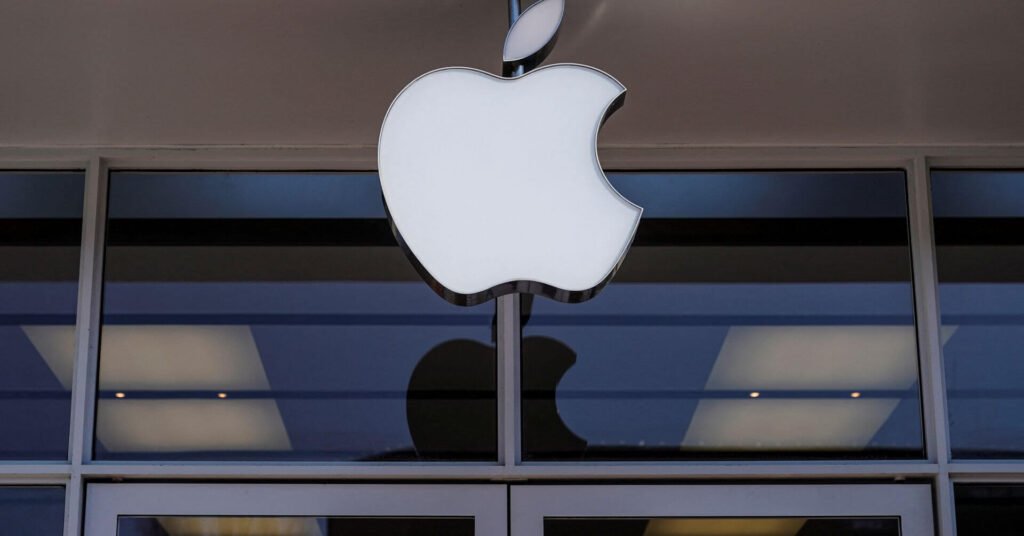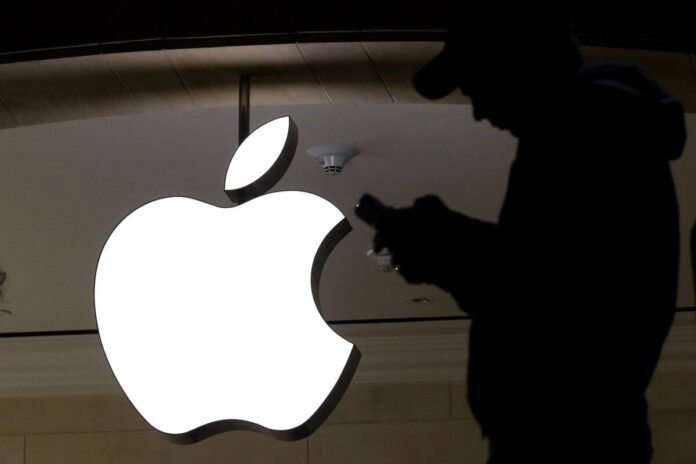This Content Is Only For Paid Member
Apple is grappling with a series of challenges, causing concern among investors as the company faces tepid sales of its new iPhone models in China. This raises questions about its ability to justify its lofty valuation and avoid a four-quarter streak of declining revenue, which would mark its worst performance since 2001. These issues are compounded by political tensions with China and overheating device problems. Adding to the worries, KeyBanc recently downgraded Apple’s stock.
According to James Abate, Chief Investment Officer at Centre Asset Management, Apple’s stagnant growth and its expensive stock create a noticeable disconnect. He points out that Apple’s stock price has not dropped to the multiples seen in previous periods when the company wasn’t growing. Abate suggests that investors should protect themselves from Apple’s valuation risk through put options, given the company’s “systemic” significance to the stock market.
In the past few months, Apple’s shares have declined by more than 10%, while the Nasdaq 100 Index saw a 5.4% decline over the same period. This decline has wiped out more than $340 billion in Apple’s market value. However, it’s important to note that Apple remains the largest component of the S&P 500 Index, accounting for over 7.1% of the index’s weight.

Apple’s dominant presence in the market makes it challenging for equity investors to overlook. Still, other megacap tech companies might offer more appealing growth prospects and trade at more reasonable price-to-earnings ratios. According to Abate, Amazon presents a compelling case for margin expansion, Microsoft and Nvidia are part of the AI craze, and Alphabet and Meta are weathering a slowdown in consumer advertising. In contrast, Apple has not demonstrated revenue growth for some time.
Apple is expected to report its fourth-quarter results in early November, with analysts forecasting a 1% decrease in revenue compared to the previous year. In contrast, the overall S&P 500 tech sector is expected to see a 1.5% increase in revenue for the quarter.
Despite these challenges, Apple is trading at 26.5 times estimated earnings, above the Nasdaq 100 Index’s multiple and its own long-term average. It also commands a premium in terms of forward sales, and its free-cash-flow yield is below its 10-year average.
While revenue growth is anticipated to turn positive for Apple in its 2024 fiscal year, it is expected to be considerably slower than in recent years. Moreover, new product categories, like its Vision Pro headset, are not expected to drive meaningful growth in the near future.
Given these concerns, some analysts have downgraded Apple this year, causing the consensus rating on the stock to decline by 9% from a December peak.
Michael Kirkbride, a portfolio manager at Evercore Wealth Management, acknowledges the challenges but also recognizes Apple’s strengths. He believes that Apple deserves the benefit of the doubt, given the company’s track record of navigating difficult times. Apple remains a top global brand with unparalleled supply chain expertise and a history of returning capital to investors through its free cash flow.
Despite the current uncertainties, Kirkbride concludes that it’s worth sticking around for what Apple can offer in the long run.




